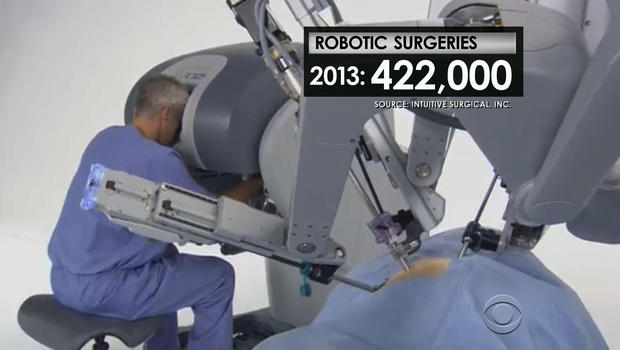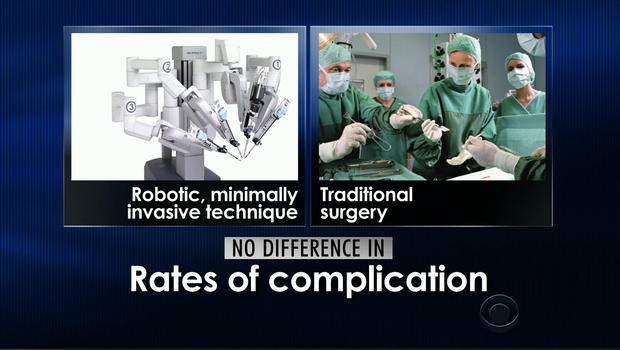Study: Robotic surgery no better than traditional surgery for bladder cancer
In hospital operating rooms it's becoming more common in the operating room for surgeons to use a robot to do the cutting. It's more precise and less invasive. But is it better for the patient?
Robotic surgery has become a selling point for many medical centers across the country. Last year, robots were used in 422,000 surgeries. That's up 15 percent from the year before.
A study out Wednesday compared two techniques for bladder cancer surgery: the use of robots, where surgeons precisely manipulate remote-controlled instruments, and tradition or open surgery, which involves larger incisions and a doctor directly handling the instruments and the organs.
Interim results released as a letter to the New England Journal of Medicine showed no difference between robotic and open surgery in rates of complication or length of hospital stay. The findings were so clear, the trial was stopped early.
Dr. Bernie Bochner is a urological surgical oncologist at Memorial Sloan-Kettering Cancer Center. He led the study.
He said the decision on whether or not to use robotic surgery depends on whether it will be better for the patient.
"What has to be paramount in the decision making is, 'Does this improve patient care?' Because if it doesn't, then it shouldn't be incorporated, and the cost really won't be justified," Bochner said.
Antonio Resendes, 62, was one of 118 patients in the study. He had robotic surgery.
"Everybody thinks that modern technology is going to solve most of the problems, but in this case here it wasn't much of a difference," Resendes said.
There is a difference in the cost. Hospitals pay $1.7 million per robot. And a 2010 study at one hospital showed robotic surgery for bladder cancer cost about $1,600 more than open surgery.
Bochner says the rise in robotic surgery has led to a fall in teaching young doctors how to do open surgery. That raises a question for the future: Even if further studies favor the open technique in some cases, will enough doctors still feel comfortable doing it?


